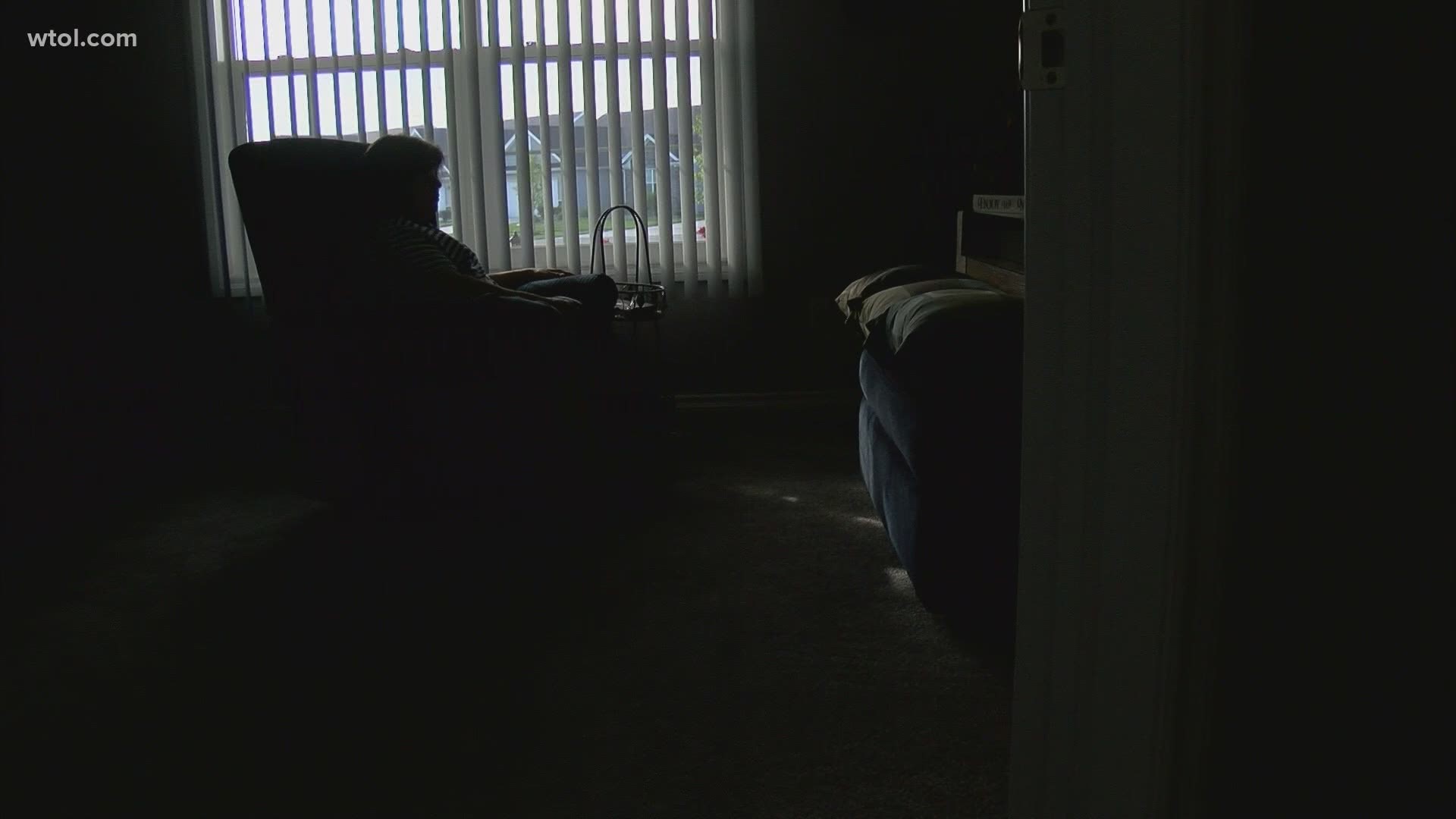LUCAS COUNTY, Ohio — "You are not alone."
It's the message mental health experts want to spread right now. September is National Suicide Prevention Awareness Month and experts fear more lives might be at risk this year as we're all feeling the weight of the pandemic.
"I suffer from mental illness myself, take medication every day. I'm thriving," says Jen Wakefield, the Director of the Lucas County Suicide Coalition. She says she took control of her life and got the help she needed.
Jen wants others to know they can do the same.
"I'm not 'just surviving', which is what it felt like before, but I'm doing wonderful," she says. "And that's because I'm making a choice to care for myself, emotionally and mentally, and it makes me a better mom and a more productive worker, and just more pleasant in general."
Jen says the first six weeks of a new school year is when the coalition typically sees more suicide attempts among young people and urges parents to keep an eye on their kids. Look for any changes in behavior.
As for adults, many are struggling with the pandemic and it shows in a recent CDC survey.
As a direct result of the COVID-19 crisis, 31% of respondents said they were experiencing anxiety or depression symptoms. 13% said they had started or increased substance use and 26% said they were experiencing trauma or stress-related disorder symptoms. 11% of respondents said they had seriously considered suicide in the last 30 days.
"Most people are not going to tell random strangers, surveyors those things. So I think it's probably much more than that," says Wakefield about the survey results.
Bill Emahiser is a licensed professional clinical counselor with Unison Health. He also works with the Wood County Crisis Line. He says not only have calls to the line been up exponentially, but hospitalizations are also up 15%. He adds, "When we're going out, we're seeing that people have made attempts to harm themselves, so we're seeing much more severe types of calls when we're interacting with folks on the crisis line."
Emahiser says the pandemic has exacerbated symptoms for folks with history of mental illness. They're also working with people who've never before experienced symptoms.
If you or someone you know are feeling hopeless, help is out there.
NAMI, the National Alliance on Mental Illness, says while some of the services may look a little different during the pandemic, they're all still available. That includes everything from virtual support groups to art workshops.
"We are there so nobody has to feel like they're isolated and alone. And that's a common feeling for a lot of folks right now. They feel like they're all by themselves, which is not true," says Robin Isenberg with NAMI of Greater Toledo.
Experts say isolation is a risk factor for depression and suicide and encourage you to reach out and check in with friends and family. If you think a loved one might have suicidal thoughts, experts say it won't hurt to ask them.
"Talk about it. Don't be afraid to ask folks who you think are struggling. Because talking about it is not going to cause somebody to take their life. If anything else, it'll negate it," says Isenberg.
If you are struggling and need someone to talk to, there are many resources to help pair you with someone trained to listen and offer guidance.
If you want to talk to someone and are not in immediate danger, Text '4Hope' to 741-741 to be connected to the Ohio Mental Health and Addiction Services Crisis Text Line. There is no charge and the information will not show up on your phone bill.
If you are in a crisis situation, call Rescue Mental Health 419-255-9585 or the Wood County Crisis Line at 419-502-4673.
If you are in need of mental health services, Call Unison Health at 419-214-4673 or NAMI of Greater Toledo 419-243-1119.
If you are a young member of the LGBTQ+ community and need help in any way, call the Trevor Project at 1-866-488-7386. Calls made to the Trevor Project are free and kept confidential.

